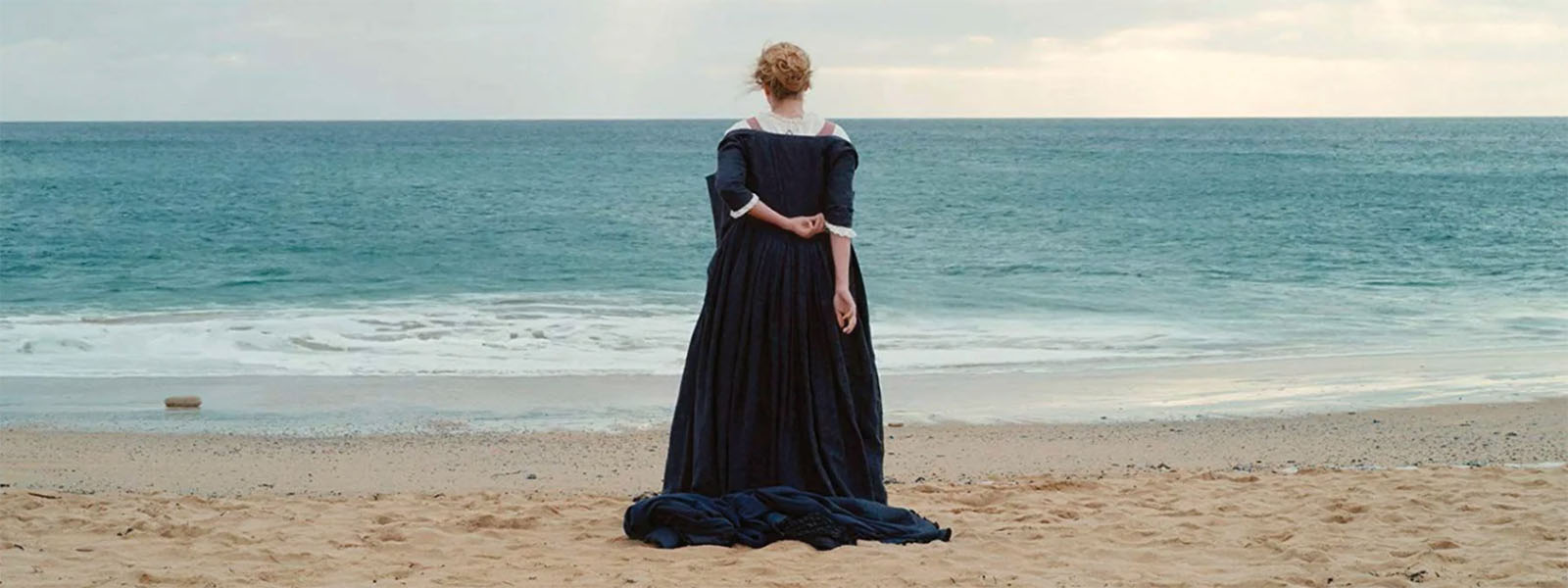13 inspiring female film directors you need to know about
Women have been involved in every facet of filmmaking since the artform began, and have created films that have been and continue to be influential to generations of directors. Yet, many lists of notable film directors overlook them entirely.
School of Filmmaking faculty member and film director Ilana Coleman takes us through 13 female film directors from around the world who she believes have created important works over the last several decades. Coleman, who is currently working on her own directorial debut, includes a range of directors – while some are fresh off their first feature films, others are established voices in the industry who have created several iconic films.
Coleman believes diversity is important in directing to ensure that a wide range of voices are represented in filmmaking. “People of different backgrounds are going to tell different narratives in their films, which give audiences better understanding and insight into the world around them,” she explains. Coleman adds that this is a particularly exciting time for women directors because they have more encouragement than ever before in the industry, and she hopes that investors and organizations continue to increase their support for emerging filmmakers.
Directors on Coleman’s list are listed in alphabetical order by last name:
Chantal Akerman
A well-known figure in the filmmaking community whose 45 directed works span from 1968 until her death in 2015, Belgian-born Chantal Akerman is known for making avant-garde and feminist films. “Akerman created several documentaries that are very personal and shine a light on her own relationship with her mother in a very interesting and engaging way,” explains Coleman. She lists the documentaries “D’Est” (“From the East”), 1993; “News from Home,” 1977; and her last film “No Home Movie,” 2015; as some of Akerman’s most notable works.
Lila Avilés
Lila Avilés, an up-and-coming filmmaker from Mexico, received wide-spread acclaim for her first feature film “La camarista” (“The Chambermaid”), 2018, which was chosen as the Mexican submission for the Academy Award for Best International Feature Film that year. Coleman calls the film “a very smart first feature,” and is looking forward to Avilés’ second film, “Totem,” which is currently in post-production.
Claire Dennis
French filmmaker Claire Dennis’ work has been described as “influential to the European cinematic identity” throughout her over thirty year career as a director. One of her most notable works is “White Material,” 2009, which Coleman lists as a favorite. The film deals with topics surrounding class, erasure and relationships. Coleman also considers Dennis’ “35 Shots of Rum,” 2008, a film that centers on a relationship between a father and daughter, to be personally influential.
Mati Diop
Mati Diop is a French/Senegalese filmmaker who started as an actress – she starred in Dennis’ “35 Shots of Rum” – before exploring directing, writing and cinematography. Coleman points to experimental documentary short “Mille Soleils” (“A Thousand Suns”), 2013, a film that follows Senegalese film star Magaye Niangas in his current life as a farmer, as a good example of Diop’s work. She also includes the more recent fictional film “Atlantique” (“Atlantics”), 2019, for which Diop became the first Black female director to be a contender for the Palme d'Orthe, the Cannes Film Festival's highest prize.
Sarah Gavron
Coleman calls British director Sarah Gavron’s most recent film “Rocks,” 2019, a story of a young teenage girl caring for her younger brother while experiencing homelessness, “very simple but very profound” and says she was “blown away by the film.” Gavron also directed the 2015 film “Suffragette,” which stars Carey Mulligan, Helena Bonham Carter and Meryl Streep, and is based on real events from the women’s suffrage movement in England.
Kirsten Johnson
An American documentary filmmaker, Kirsten Johnson started as a cinematographer and has worked on more than fifty projects throughout her career. In 2016, Johnson created the autobiographical documentary film “Cameraperson” using footage gathered over her years as a cinematographer from around the world. Coleman describes the film as “a beautiful project about the people surrounding a film and the stories that didn’t make a final cut of a documentary, but are still important.” She also lists Johnson’s recent film, “Dick Johnson is Dead,” 2020, as a moving work that preemptively deals with the death of her father who suffers from dementia.
Jessica Kingdon
Jessica Kingdon is a Chinese American director whose works have already made a big impact in the industry even though she is just in the beginning of her career. Coleman particularly likes Kingdon’s 2017 short documentary “Commodity City,” a film that follows the lives of Chinese wholesalers in Yiwu International Trade City, and regularly shows it to students in her directing class. Kingdon’s most recent documentary, “Ascension,” 2021, which “explores the pursuit of the ‘Chinese Dream’” was nominated for a 2022 Academy Award for Best Documentary Feature.
Luna Marán
Coleman adds Mexican filmmaker Luna Marán to the list as a director who is pushing for more films to be made in areas of Mexico that historically have not been shown, particularly her native region of Oaxaca. “She is a director that is encouraging other types of narratives, turning away from the classic Hollywood storytelling and more toward the vision of an individual,” says Coleman. Marán’s feature film, “Tío Yim” (“Uncle Yim”), 2019, incorporates “footage of her father, a radical Zapotec singer-songwriter and community leader, as his daughter encourages him to write a new song about his life.”
Lucrecia Martel
Coleman lists Argentinian filmmaker Lucrecia Martel as a director whose films explore “class and the erasure of indigienous people in a very smart and subtle way.” Two films that she gives as examples of these themes are “La ciénega” (“The Swamp”), 2001, and “La mujer sin cabeza” (“The Headless Woman”), 2008. Coleman also highlights “La nina santa” (“The Holy Girl”), 2004, as an important coming-of-age film created by Martel that explores sexuality and religion.
Sarah Polley
Known also for her many acting credits, Canadian filmmaker Sarah Polley was nominated for an Academy Award for Best Adapted Screenplay for her directorial debut “Away from Her,” 2006. A work by Polley that Coleman particularly enjoys is “Take this Waltz,” 2011, which she calls “a break-up film that is good for anyone with a broken heart to watch.” Polley is currently working on a feature film called “Women Talking,” based on a novel of the same name starring Frances McDormand, Ben Whishaw, Rooney Mara and Claire Foy.
Lynne Ramsay
BAFTA Award-winning Scottish director Lynne Ramsay has had a long career in filmmaking, with notable projects including “Ratcatcher,” 1999, and the more famous “We Need to Talk about Kevin,” 2011, starring Tilda Swinton and Ezra Miller. However, Coleman points to one of her earliest works as her personal favorite: “she directed one of my favorite short films, ‘Gasman,’ in 1998 which, like many of her works, centers on the theme of family.”
Céline Sciamma
French director Céline Sciamma is known as a filmmaker whose works explore the fluidity of gender identity and sexual identity. Coleman describes Sciamma’s “Tomboy,” 2011, – a film that follows a 10-year-old gender nonconforming child – as a work that “changed the way I saw filmmaking.” A more recent film that garnered international attention is “Portrait de la jeune fille en feu” (“Portrait of a Lady on Fire”), 2019, for which Sciamma served as both writer and director. The film won the Cannes Film Festival Award for Best Screenplay.
Agnés Varda
Coleman rounds out this list with Belgian-born French director Agnés Varda. A more historical addition to the list, Varda continues to be an influence for many filmmakers today. Toward the end of her life, she received several lifetime achievement awards from organizations including the Cannes Film Festival and the European Film Academy. With over sixty directing credits throughout her career, Coleman points to “Sans toit ni loi” (“Vagabond”), 1985, as one of Varda’s most iconic works that she considers a favorite. Coleman also lists fiction films “Le Bonheur” (“Happiness”), 1965, and “L'une chante l'autre pas” (“One Sings, the Other Doesn't”), 1977, as well as documentary short “Ulysse,” 1983, as notable works that she recommends watching.
Start your filmmaking journey today.
Get the best news, performance and alumni stories from UNCSA.
SUBSCRIBE TO OUR NEWSLETTERS(OPENS IN NEW TAB)(OPENS IN NEW TAB)
March 25, 2022






